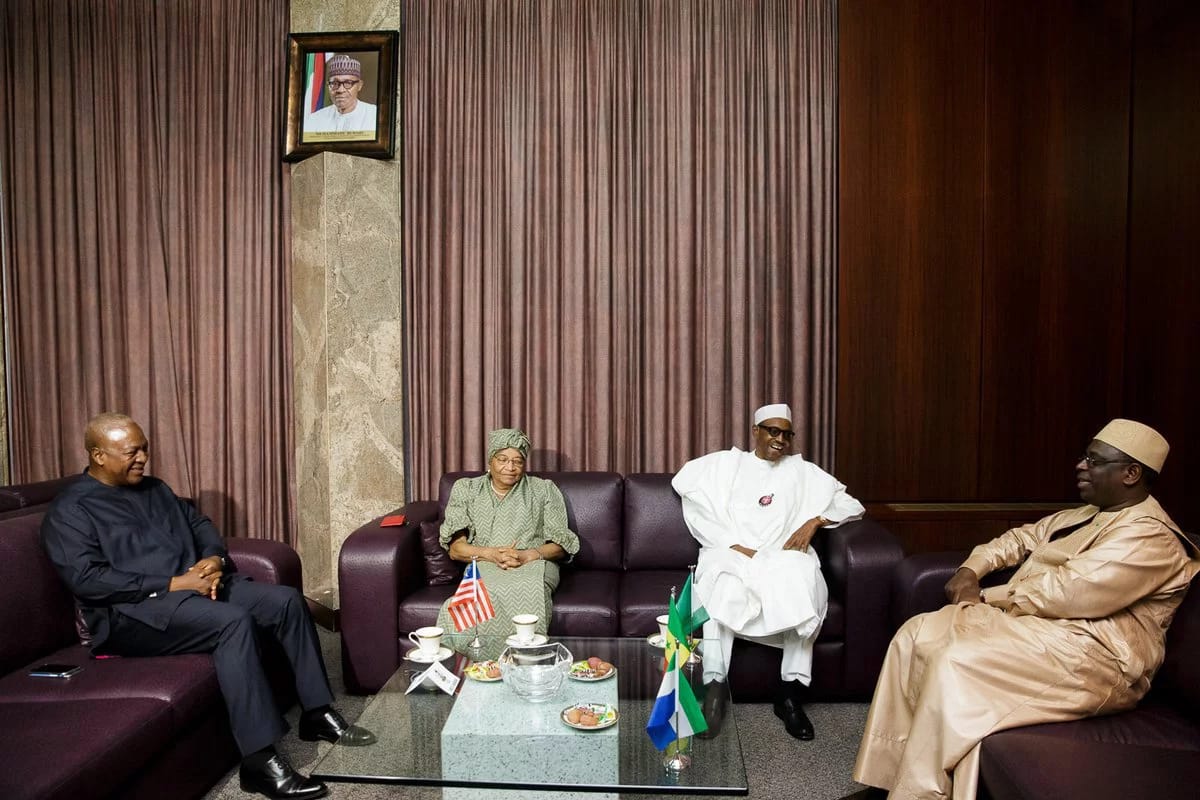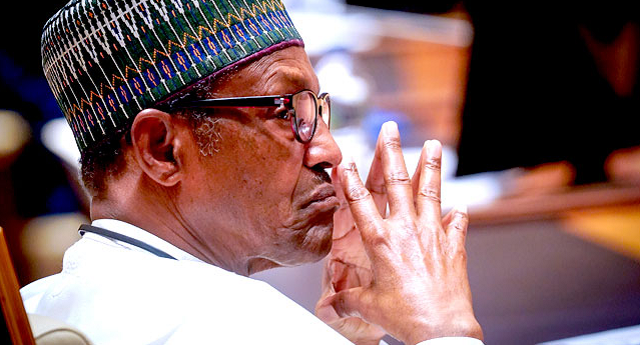
Outgoing President of The Gambia, Yahya Jammeh, has asked the high Level ECOWAS mediation mission led by President Muhammadu Buhari not to come to the country on Wednesday, January 11, for talks.
The presidency in a statement by Garba Shehu, the senior special assistant on media and publicity on Tuesday, January 10, said the president and other ECOWAS leaders will visit Banjul, the capital of Gambia, on Friday, January 13.
President Buhari had on Monday, January 9, met behind closed-door with three West African leaders at the new Banquet Hall of the Presidential Villa, Abuja, in continuation of discussion on the crisis brewing in Gambia.
Towards resolving the crisis in Gambia,President Buhari was to lead a delegation to The Gambia tomorrow.
Buhari is mediating in the crisis alongside Mr. John Mahama, the immediate past president of Ghana.
Read the statement below:
At the instance of President Yahya Jammeh of The Gambia, the High Level ECOWAS mediation mission led by Nigeria’s President Muhammadu Buhari has pushed forward its visit to Banjul, the capital of Gambia, to Friday.
In accepting to postpone the visit earlier planned to take place on Wednesday, President Buhari, who is mediating alongside Mr. John Mahama, the immediate past president of Ghana said the delay notwithstanding, the mandate of the ECOWAS will be accomplished.
President Buhari reiterated the appeal on Monday by ECOWAS leaders that the Gambian leaders do everything they can to douse the tension in the West African country, which has led citizens to leave the country due to political uncertainty.
The Nigerian leader said ECOWAS is committed to the resolution of the crisis through inclusive dialogue with respect to the constitution and the will of the people of Gambia.
Jammeh, a former coup leader, who has ruled Gambia for 22 years, initially accepted his loss in the December 1 election, shocking Gambians who have lived through his rule since he took power in a 1994 coup.
But a week later he changed his mind, saying the electoral commission had been biased by “foreign influences” and vowing to hang on despite regional and international condemnation.


















